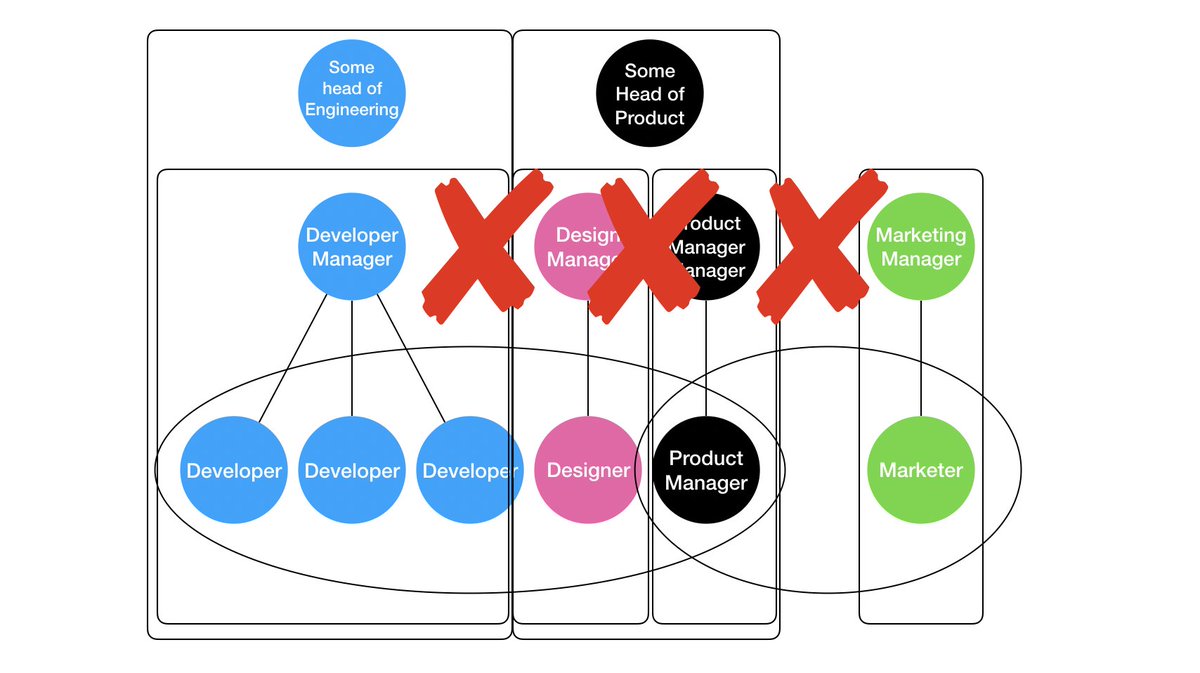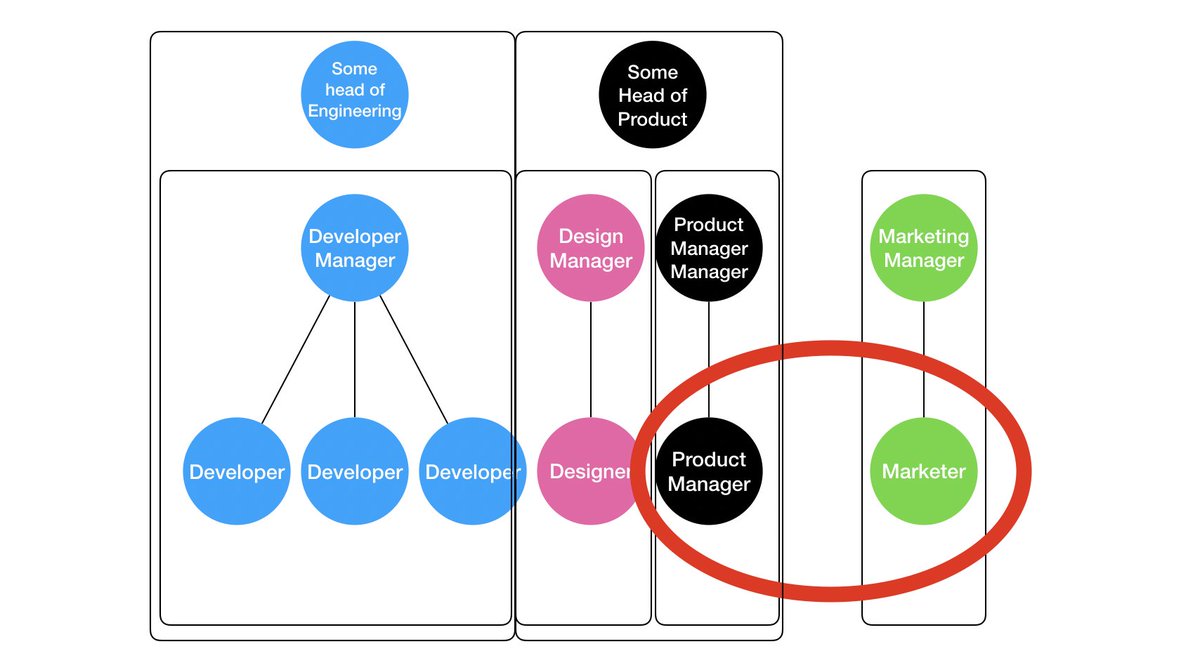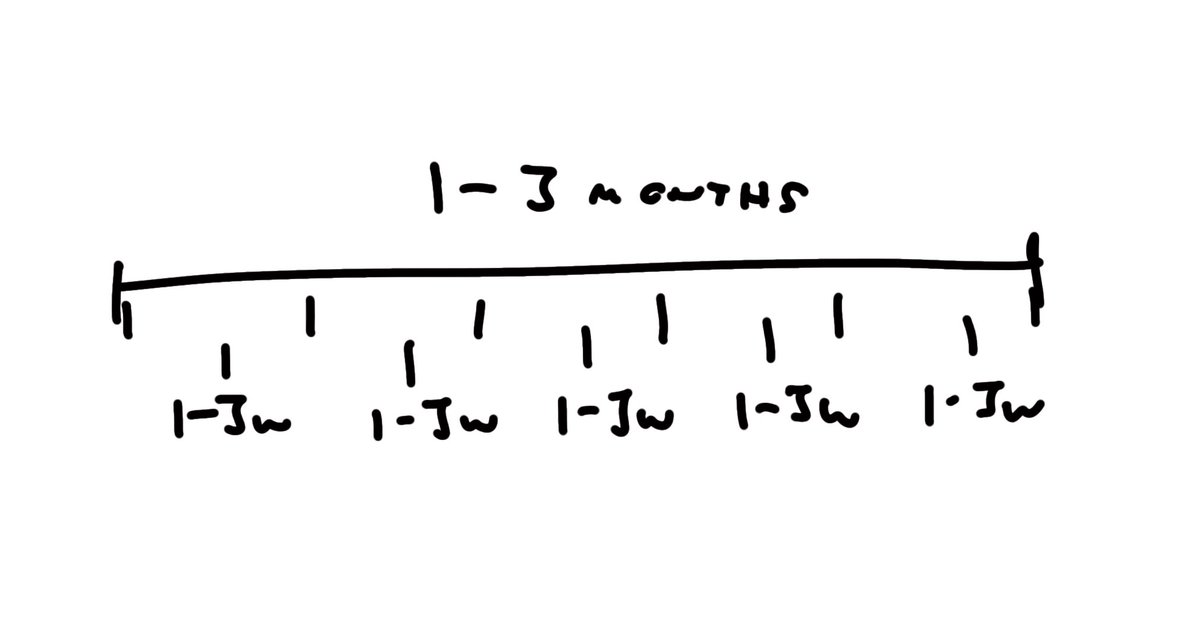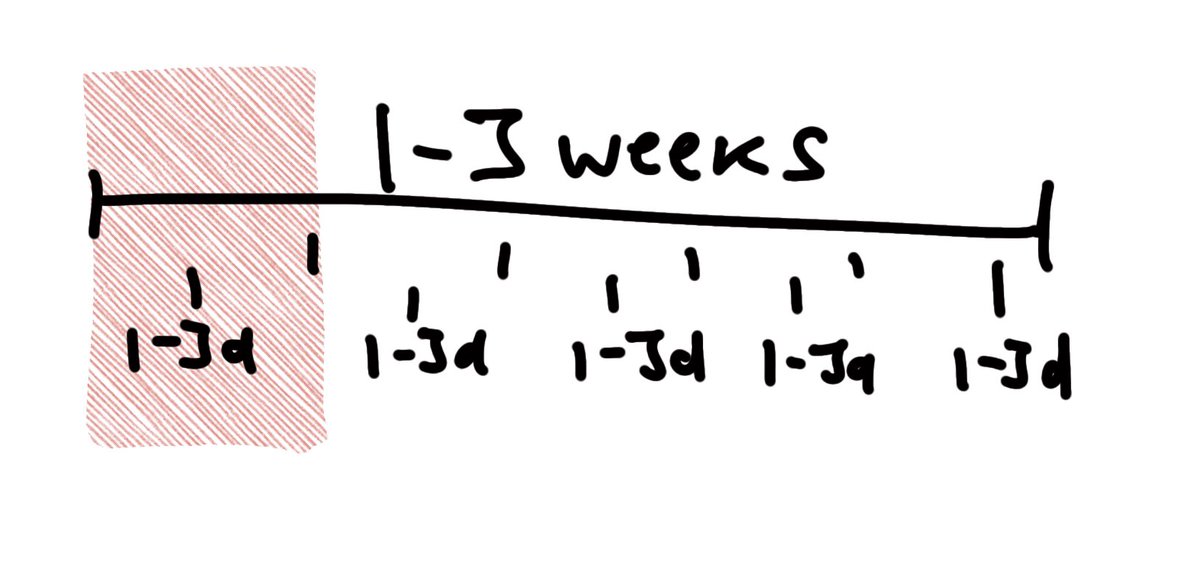
The challenge of incentive structures in this model is one of the big challenges of product overall. Quick little thread (1/n) 

If the layer of managers does not collaborate and interact regularly, there is absolutely no way they can take stock of performance more holistically. You'll end up with competing incentives. (2/n) 

If the developer manager treats her team as three one-person teams ... to be loaded up and managed individually, that will have unintended 2/3rd order effects for the product manager and designer (and their relationship to their team)
Incentive: crank out *my* projects
(3/n)
Incentive: crank out *my* projects
(3/n)

If the developer manager is ON the team, while the design manager and product manager manager are NOT ON the team, you have an asymmetry. Difficult to align incentives given the extra scrutiny on developers ... (4/n) 

If the product manager is the only "external" face of the team to marketing ... that will incentivize the PdM to do certain things they wouldn't do if the whole team collaborated withthe marketer (5/n) 

Treating a team as a team, instead of 5 teams of 1 and have that translate into the performance/incentive structure of the org, is a HUGE deal. Without it, teams suffer.
When "cross functional collab" is a line-item ... well, cf collab will be treated as a line-item. (6/end)
When "cross functional collab" is a line-item ... well, cf collab will be treated as a line-item. (6/end)
• • •
Missing some Tweet in this thread? You can try to
force a refresh









